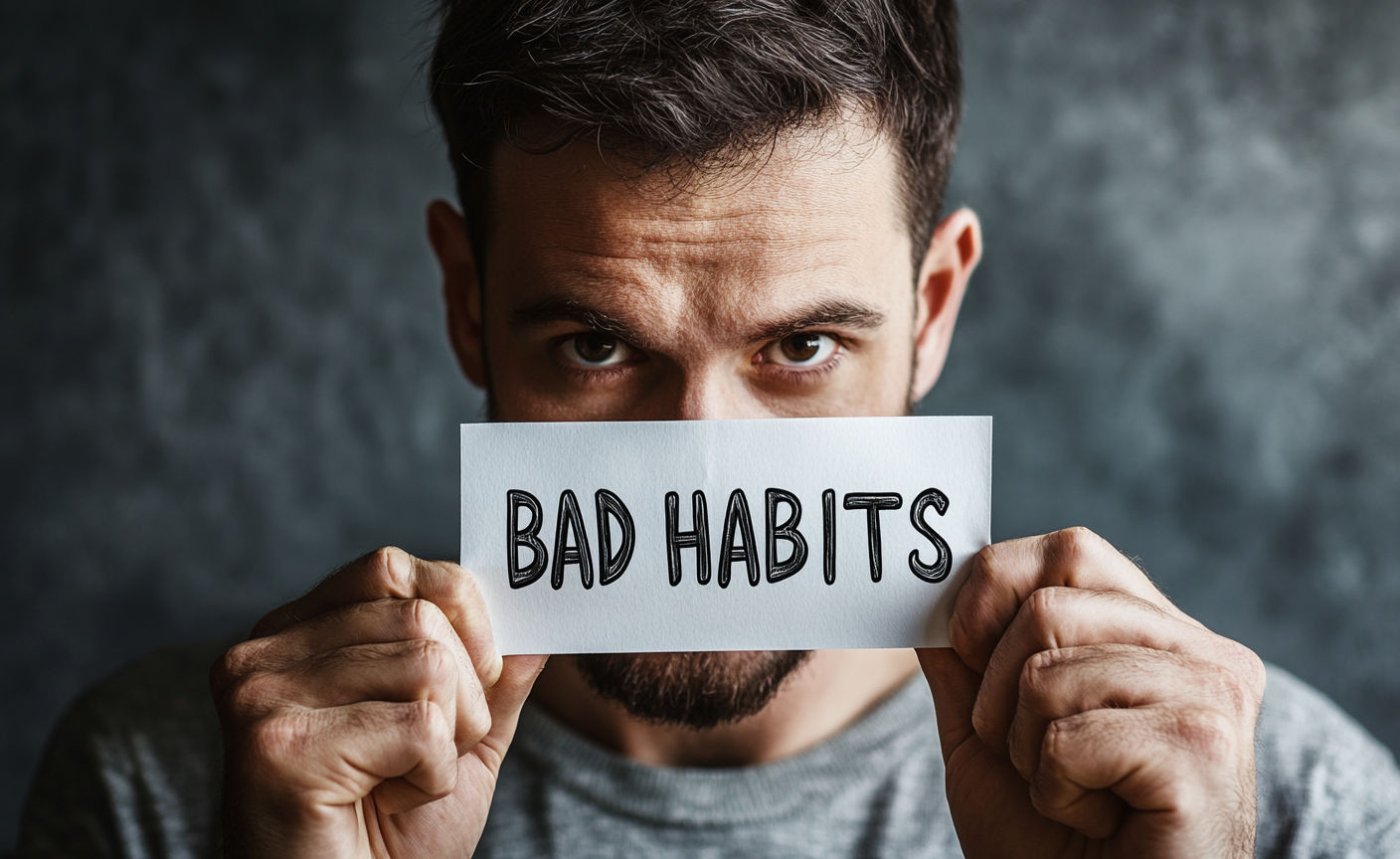We all have bad habits we want to break, like biting our nails or scrolling through social media before bed. Breaking these bad habits may feel challenging, but it’s far from impossible. You can stop unhealthy habits with the right strategies and mindset. If you've been asking, “How to break bad habits?” or wondering where to start, this guide is for you. In this blog, we walk you through 10 practical tips to help you say goodbye to those habits holding you back.

-
Identify the Root Cause
Every habit starts somewhere, and understanding its cause is the first step to improving it. Ask yourself honestly, “Why do I do this?” If you find yourself snacking when you're not even hungry, emotions like stress, boredom, or anxiety might be the true culprit. Breaking bad habits starts with self-reflection and a deeper understanding of yourself.
-
Replace, Don’t Erase
Trying to break habits overnight just doesn't work. Instead of forcing yourself to “just stop,” swap your bad habits for better ones. If you’re craving chips, grab air-popped popcorn. Addicted to late-night TikTok? Take a short walk or dive into a great book. Overcoming your bad habits always involves finding positive alternatives.
-
Set Clear Goals
Real change doesn’t come from just saying, “I’ll do better.” Clear, actionable goals give you a roadmap. Try saying, "I will avoid junk food five days a week" or "I’ll only check Instagram after dinner." Specific goals sharpen your focus and make it easier to measure real progress as you work on how to stop bad habits.
-
Make it Harder to Do
If something’s hard to access, you're far less likely to do it. Remove temptations from your environment. Don’t keep chips in the pantry, no candy on your desk, or no food delivery apps cluttering your phone. Even simple acts like putting your phone in another room while you work can make it difficult to continue bad habits.
-
Use Positive Reinforcement
Changing behavior is tough, so celebrate your wins along the way. If you’ve resisted impulse shopping for a whole month, treat yourself to something meaningful without guilt. Positive reinforcement helps your brain to crave that feeling of success. Over time, rewarding yourself becomes a powerful tool for stopping bad habits and staying motivated.
-
Create Triggers for Good Habits
Habits last longer when you connect them to existing routines. Create triggers that remind you to practice a good habit right after doing something you already do. For example, commit to a quick 5-minute stretch after your morning brush. Small but consistent moves like these build momentum, making it easier to replace bad habits with healthier ones.
-
Find Your ‘Why’
Deeper motivation keeps you moving forward. Write why you want to break this habit—whether it's for better health, clearer thinking, or just feeling more in control. When a weak moment hits, revisiting your personal “why” gives you the strength to resist and reminds you exactly why you took this decision.
-
Build a Support Network
You don’t have to do this alone. Telling your family and friends about your goals builds accountability and emotional support. They can cheer you on, celebrate your progress, or even join you in building better habits. Shared goals build a sense of community, and a bit of encouragement can help you overcome stubborn bad habits.
-
Be Patient with Yourself
How long does it take to break a habit? Research shows it can take anywhere from 21 to 66 days or even longer, depending on the person and the habit. Slip-ups are normal, and that doesn’t mean you've failed. What matters is persistence. Focus on the progress you’re making day by day, and trust that patience pays off in your journey to healthier habits.
-
Use Tools to Track Progress
Success feels even sweeter when it is visible. Use a habit-tracking app or a simple journal to log your wins and lessons learned. Seeing your streaks grow gives you a massive motivation boost. Tracking your journey lets you see your progress and reminds you that you can break bad habits.
Habits form your personality. Bad habits have negative effects on one's mental health. Breaking them isn’t just about discipline; it’s about strategy, patience, and small, consistent steps. Whether it’s three weeks or three months, the effort you put in today will pay off tomorrow. It makes you feel good about yourself. Don’t stress about being perfect. Instead, focus on being just 1% better each day. That’s the real secret to how to stop bad habits and make real, lasting change. You've got this!
